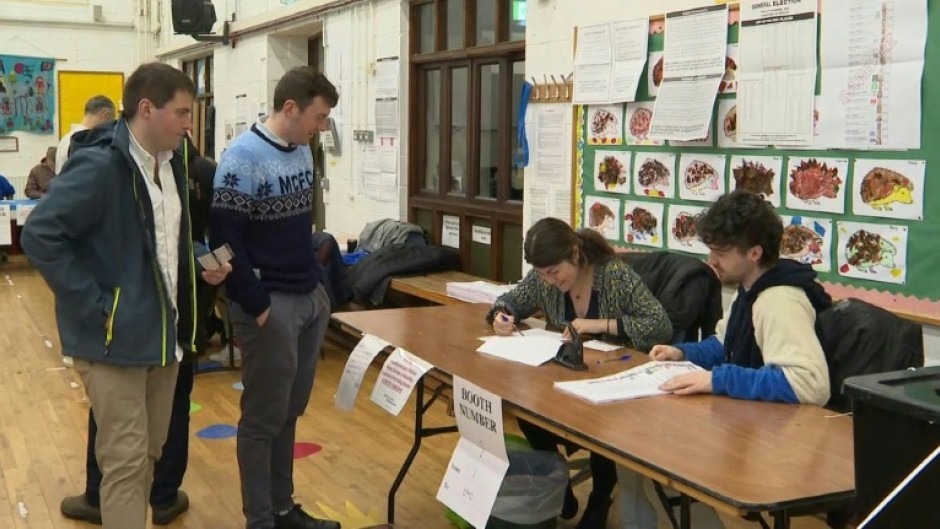DUBLIN - Voting got under way in Ireland on Friday in a general election in which the two centre-right coalition partners are neck-and-neck with opposition party Sinn Fein after a campaign marked by rancour over housing and cost-of-living crises.
Polls opened at 0700 GMT and will close at 2200 GMT as voters choose new members of the 174-seat lower chamber of parliament, the Dail.
Final opinion polling put the three main parties -- centre-right Fine Gael and Fianna Fail, and the leftist-nationalist Sinn Fein -- each on around 20 percent.
Counting is not due to start until Saturday morning, with partial results expected throughout the day.
A final result, however, may not be clear for days as EU member Ireland's proportional representation system sees votes of eliminated candidates redistributed during multiple rounds of counting.
Prime Minister Simon Harris was one of the first to vote, casting his ballot in his constituency of Delgany, south of Dublin.
The Fine Gael leader, who became Ireland's youngest-ever taoiseach (prime minister) when he took over in April, held a solid lead entering the campaign.
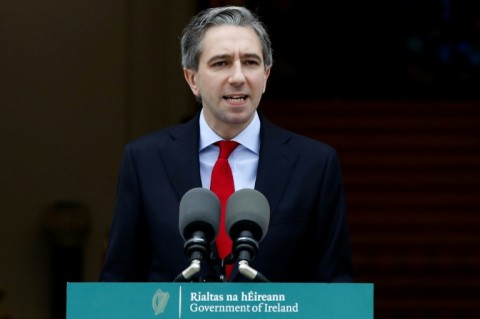
But the party lost its advantage after Harris was seen in a viral clip appearing rude and dismissive to a care worker on the campaign trail.
"I've enjoyed putting forward my policy vision as a new leader, as a new Taoiseach," Harris, 38, told reporters after voting.
"Now I'm looking forward to the people having their say."
- Status quo? -
Some in his constituency did not share his optimism. IT worker Kevin Barry, 41, said he was unsure about voting "as all the options seem so terrible".
While leaning towards the governing coalition, Barry told AFP: "I am not really happy with them as they are responsible for the mess that we are in, particularly with regard to housing."
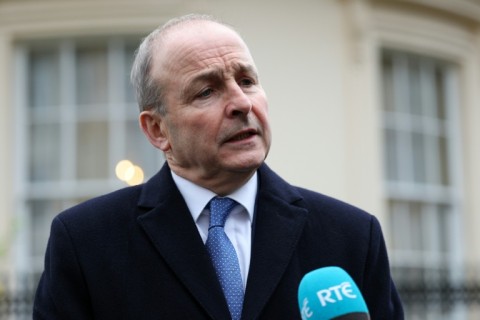
For Peta Scott, 54, a healthcare worker and mother of four, housing woes meant it was "a challenge" for her children to stay in Ireland.
In north Dublin, Deric Sweeman, a 55-year-old truck driver, said he voted for Sinn Fein. "It's time for a change... Fine Gael and Fianna Fail have had enough to fix it and they have not done it," he added.
Housing and infrastructure improvements need to be the priorities for the next government, he said.
At the last general election in 2020, Sinn Fein -- the former political wing of the paramilitary Irish Republican Army -- won the popular vote but could not find willing coalition partners.
That led to weeks of horsetrading, ending up with Fine Gael, which has been in power since 2011, agreeing a deal with Fianna Fail, led by the experienced Micheal Martin, 64.
The role of prime minister rotated between the two party leaders. The smaller Green Party made up the governing coalition.
Harris has had to defend the government's patchy record on tackling a worsening housing crisis and fend off accusations of profligate public spending.
A giveaway budget last month was also aimed at appeasing voters fretting about sky-high housing and childcare costs.
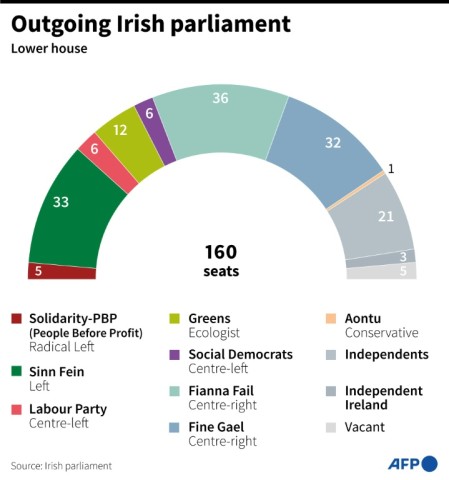
Both centre-right parties stress their pro-business credentials and say returning them to power would ensure stability, particularly with turmoil abroad and the risk of external shocks.
Ireland's economy depends on foreign direct investment and lavish corporate tax returns from mainly US tech and pharma giants.
But threats from incoming US president Donald Trump to slap tariffs on imports and repatriate corporate tax of US firms from countries such as Ireland have caused concern for economic stability.
- Time for change? -
Mary Lou McDonald's Sinn Fein has seen a dip in support because of its progressive stance on social issues and migration policy, as immigration became a key election issue.
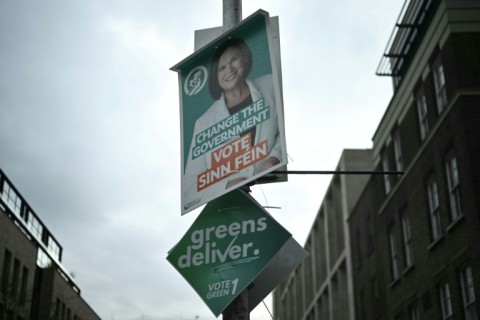
But it has rallied on the back of a campaign heavily focused on housing policy and claims it is the only alternative to the Fine Gael and Fianna Fail, who have swapped power since Irish independence from Britain in 1921.
In McDonald's Dublin central constituency, retiree William McCarthy voted Sinn Fein but did not think they would win.
Physiotherapist Jenny Foley, 28, voted for the smaller centre-left Social Democrats because of their immigration policy and pro-choice stance, with abortion legalised in Ireland in 2018.
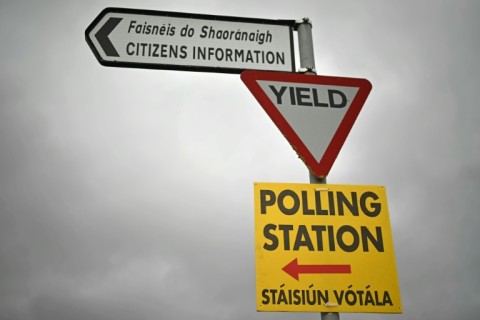
Independents could play a role in the formation of the next government if Fine Gael and Fianna Fail fall short of an 88-seat majority.
By Peter Murphy

